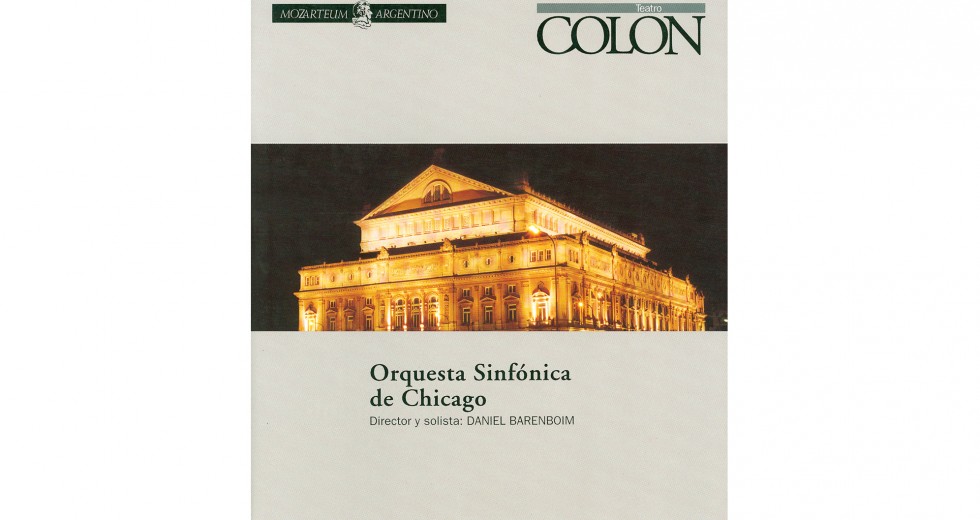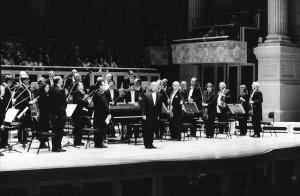
The Chicago Symphony performed its first concert in South America at the Teatro Municipal in Rio de Janeiro, Brazil, on October 4, 2000. Daniel Barenboim conducted Mozart’s Piano Concerto no. 25 (from the keyboard) and Mahler’s First Symphony.

Daniel Barenboim and the Orchestra onstage at the Sala São Paulo in Brazil on October 5, 2000 (Greg Morton photo)
The Orchestra “gave one of the best demonstrations of orchestral power that has ever been presented in Rio,” according to Luiz Paulo Horta in O Globo, with Barenboim delivering a “perfect Mozart concerto [and] Mahler’s Symphony no. 1 ended in an absolutely impressive display of symphonic wizardry. . . . Amidst the scintillating melodic architecture that he imposed on the Symphony no. 1, something came from within his heart. The maestro rejoiced with his orchestra, extracting great emotion from the musicians.”
Following Mahler’s Seventh Symphony on October 6 at the Sala São Paulo, Arthur Nestrovski, for Folha de São Paulo, wrote, “this was a Mahler that looked forward more than backward. There was less of Vienna and more—though it may sound strange—of Chicago. . . . The strings attacked the music, impressive as they played as though from within. . . . Each entrance of the horns, the trombones, and the trumpets became a memorable event.”
On October 10, 11, and 12, at the Teatro Colón in Buenos Aires, Argentina, concerts were given “with an artistic creation of rare dimensions for any place in the world,” praised Jorge Araoz Badi in La Nación, “Homage was paid, recognition bestowed, and moving applause dedicated to the conductor of the Chicago orchestra. . . . [Barenboim] performed Prelude to The Afternoon of a Faun and La mer by Debussy [followed by] The Three- Cornered Hat by Manuel de Falla. There is no point in digressing into great praise regarding the sound of this orchestra. It is irrelevant and presumptuous to bother with the nuances of rhythm and melody. Simply, it is important to note that the tightly stretched images of Debussy, as produced by Barenboim, contrast with the indistinct sketches of other, more common versions that only go after musical sensuality. And Barenboim’s crescendos take your breath away.”
Image above: Program for the October 10, 11, and 12 concerts at the Teatro Colón in Buenos Aires, Argentina
This article also appears here.